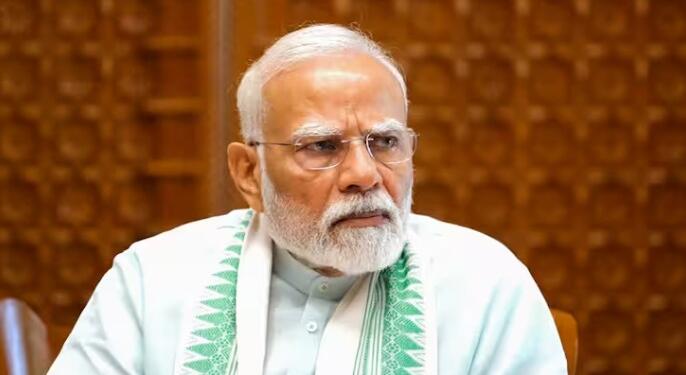Prime Minister Narendra Modi will chair a high-level meeting of the NITI Aayog Governing Council this Saturday at Bharat Mandapam in New Delhi.
This will be the first significant interaction between the Prime Minister Modi and the Chief Ministers of all states since the Indian Armed Forces successfully executed Operation Sindoor, dismantling nine terrorist camps and training centres in Pakistan and Pakistan-Occupied Kashmir. The operation was a response to the recent terror attack in Pahalgam.
According to a statement from NITI Aayog, the meeting reflects the Prime Minister Modi’s commitment to cooperative federalism and the vision of “Team India” working together to build a developed Bharat.
“As India progresses toward developed nation status, states must leverage their unique strengths to drive transformative change at the grassroots, ensuring the aspirations of 140 crore citizens translate into meaningful outcomes,” the statement said.
The meeting, themed ‘Viksit Rajya for Viksit Bharat @2047’, aims to align state-level development plans with the national goal of transforming India into a developed country by its 100th year of independence.
Key focus areas include:
Human development
Economic growth
Sustainability
Technological advancement
Governance reform
States will be encouraged to prepare bold, inclusive, and long-term vision documents rooted in local realities but aligned with national priorities. Strategies will emphasize data-driven planning, measurable outcomes, and strong institutional support through Project Monitoring Units, ICT infrastructure, and dedicated Monitoring & Evaluation Cells.
The Governing Council serves as the premier platform for dialogue between the Centre and States/UTs, providing an opportunity to deliberate on development challenges and define the role of states as foundational pillars of a Viksit Bharat.
The agenda also includes discussions on:
Promoting entrepreneurship
Enhancing skilling initiatives
Generating sustainable employment
Additionally, the meeting will seek to build consensus on outcomes from the Fourth National Conference of Chief Secretaries, held from December 13–15, 2024. That conference, which included participation from Union and State officials, focused on the theme: “Promoting Entrepreneurship, Employment, and Skilling—Leveraging the Demographic Dividend.”
Six thematic areas emerged from the conference:
Enabling manufacturing ecosystems in Tier 2 and 3 cities
Boosting service sector growth in smaller cities
Strengthening MSMEs and informal rural non-farm employment
Supporting MSMEs and informal jobs in urban areas
Unlocking green economy opportunities via renewable energy
Advancing circular economy initiatives for sustainability
A senior government official indicated that the meeting will also touch on Budget 2025–26 proposals and ongoing economic challenges. Despite global slowdowns and trade tensions—including reciprocal tariffs from the U.S.—India’s economy is projected to grow between 6.2% and 6.7% this fiscal.
The IMF and World Bank have recently revised India’s growth forecast for 2025–26 to 6.2% and 6.3% respectively, citing global uncertainties.
The Governing Council—the apex decision-making body of NITI Aayog—includes all Chief Ministers, Lieutenant Governors of Union Territories, and select Union Ministers. Prime Minister Modi, who has chaired the body since its inception, will preside over this crucial meeting.
Notably, 10 states and UTs did not attend the Council’s meeting held last year on July 27.
NITI Aayog is currently preparing a comprehensive vision document to guide India’s economic and social development toward becoming a $30 trillion economy by 2047. This document will integrate 10 sector-specific strategies, focusing on economic growth, social progress, sustainability, and governance.
Operation Sindoor was launched by Modi government in response to the brutal killing of 26 Indian tourists in Pahalgam on April 22 by Pakistan-backed terrorists. In a swift counteroffensive, Indian forces struck nine terror camps in Pakistan and Pakistan-occupied Kashmir, neutralising top terrorists and dismantling their launch infrastructure.




















